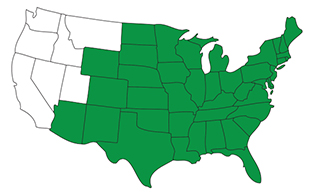

Lawn CARE PLANS
Plan Comparison
Find the plan that best suits your lawn’s unique needs.
TruCore℠
Advanced, custom care for a lawn you’ll love.
TruBasic℠
Treat your lawn to partial season weed and nutrient services.
Pest Control Plans
Plan Comparison
Find the plan that best suits your lawn’s unique needs.
TruDefense℠ Mosquito Control
Target mosquitoes where they live to reduce their numbers in just 24 hours.
TruBarrier℠ Perimeter Pest Control
Prevent pests from getting inside with a barrier of protection.
Flea, Tick & Outdoor Nuisance Pest Control
Put a stop to active and persistent pests in your outdoor space.
Enter your ZIP Code to find your branch

 Branch Finder
Branch Finder











Facebook
X
Youtube
Copy Link
Email